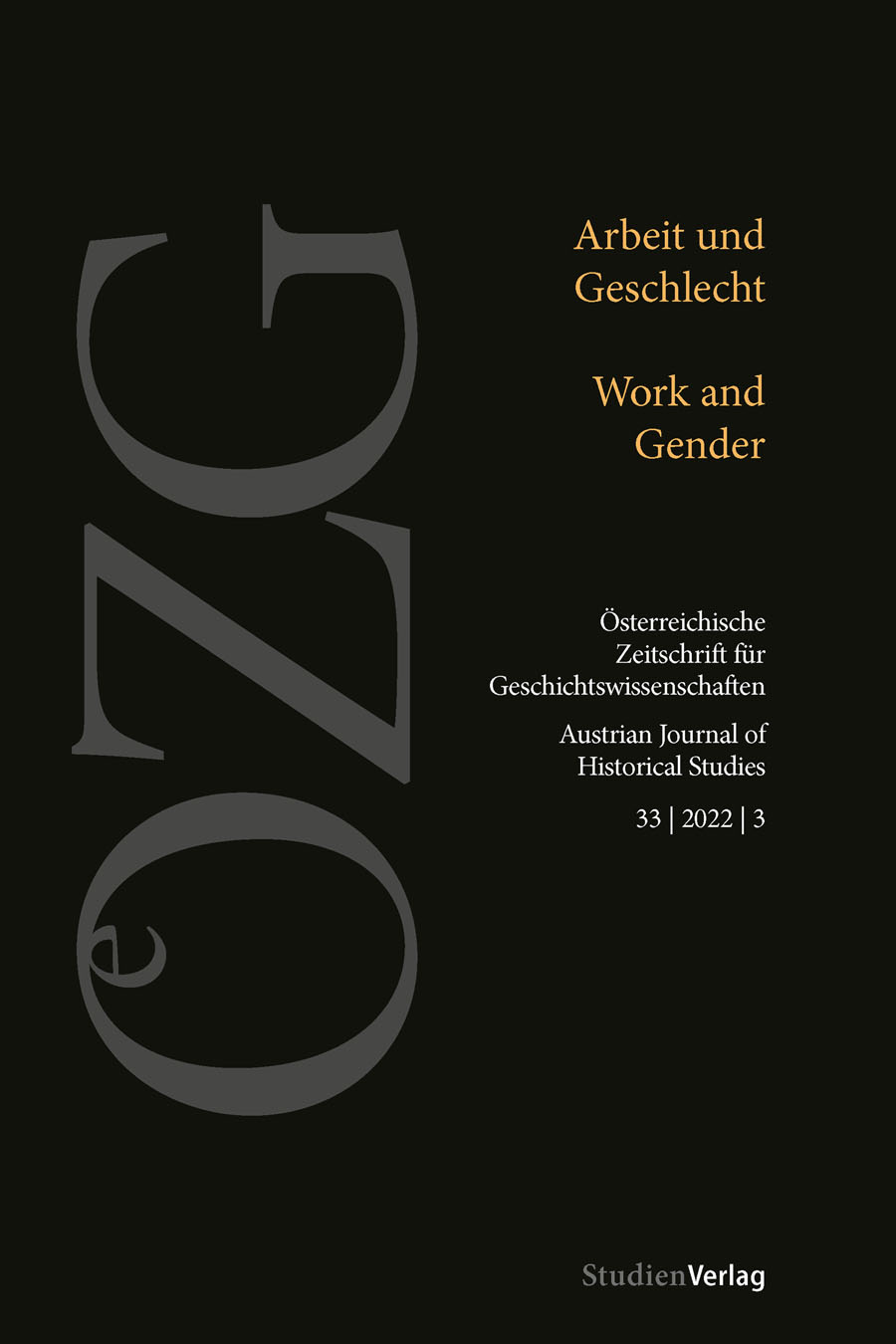Productive Indebtedness
Sewing Machine Work under Capitalism, 1860–1900
DOI:
https://doi.org/10.25365/oezg-2022-33-3-5Keywords:
women’s work, sewing machine, commodification, capitalism, Europe, genderAbstract
This article explores how the largest sewing machine manufacturer in the world – the US Singer Manufacturing Company – entangled seamstresses in contractually regulated credit relationships in German-speaking Europe during the second half of the nineteenth century. The assumption is that Singer not just sold sewing machines on instalments but at the same time established a regime of productive indebtedness that commodified the labour of seamstresses. The first step will be to trace the construction of this regime which consisted of a sales infrastructure, dynamic payment policies, and gendered advertising campaigns. Secondly, it will be shown how the regime aimed to put pressure on contract subjects to be productive by means of payment obligations, distributive control mechanisms, and training offers.
Downloads
Published
How to Cite
Issue
Section
License
Copyright (c) 2022 Austrian Journal of Historical Studies

This work is licensed under a Creative Commons Attribution 4.0 International License.


